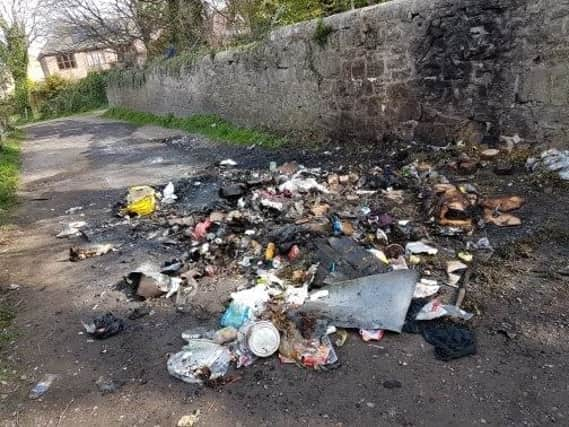How you can help rid South Tyneside of fly-tippers - council chief’s call for public to help tackle illegal dumping


According to recent figures, litter bugs have coughed up thousands of pounds following a council crackdown.
From October 31, 2018 to the end of March, 11 council prosecutions took place in the borough.
Advertisement
Hide AdAdvertisement
Hide AdOffences ranged from waste being dumped, more serious fly-tipping offences and a takeaway breaching planning conditions.
In total, offenders were forced to pay more than £7,000 split between fines, court fees and compensation.
Despite the enforcement success, South Tyneside Council’s Licensing and Regulatory Committee heard officers have limited resources to tackle litter bugs.
And according to Coun Doreen Purvis, working with the public is key to keeping the borough clean.
Advertisement
Hide AdAdvertisement
Hide Ad“The more we publicise the cost of fly-tipping the better results we will have from the public who can take note of van (registration) numbers that dump waste,” she told councillors at South Shields Town Hall (Friday, June 7).
“Intelligence is key, the public don’t like their areas and communal spaces defaced by this rubbish, they’re coming round to our way of thinking.
“The more publicity the better.”
Fly-tipping costs local authorities an estimated £44million every year to remove.
The types of land most commonly affected include land near public waste tips, roadsides, private land on the outskirts of urban areas, back alleys and derelict sites.
Advertisement
Hide AdAdvertisement
Hide AdAt the meeting, several councillors added there were ongoing issues in back lanes and allotments in their wards.
Senior Development Services Manager on the council, Stuart Wright, said the council tends to focus on ‘hotspots’ following reports of fly-tipping.
While cameras used to catch illegal waste dumps can act a deterrent, he explained, they can also push the problem elsewhere.
“The cameras we install in those locations have to be overt, to do anything covertly brings in a lot of regulation and requires judicial approval now for us to install cameras covertly,” he said.
Advertisement
Hide AdAdvertisement
Hide Ad“We have five sets of cameras to cover the entire borough, when signage goes up or CCTV it sometimes does its job acting as a deterrent.
“But it also creates problems in another area, it’s really difficult with the resources we have currently.”
The meeting also heard council collection charges for rubbish could also push people towards unlicensed waste carriers on social media.
Mr Wright added that public needed to stay vigilant on the issue.
Advertisement
Hide AdAdvertisement
Hide Ad“We’re trying to educate the public and say if you engage in the service of people disposing of waste, please check that they’re licensed,” he said.
“Quite often it’s someone turning up at the door, you pay them, they will take it and you find out it’s been tipped elsewhere.”
Fly-tipping can be reported to the council 0191 427 7000 or online at: www.southtyneside.gov.uk/reportit
For more information on waste disposal, visit: www.southtyneside.gov.uk/wasteandrecycling
Chris Binding , Local Democracy Reporting Service